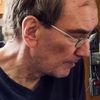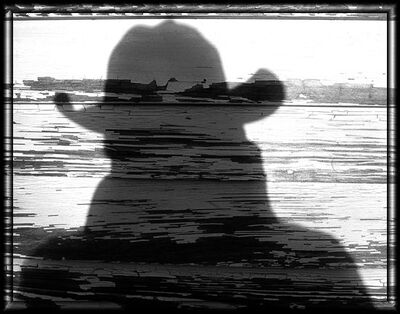Better understanding of long exposure photography
Jul 30, 2019 14:32:37 #
I am trying to get a better grasp of long exposure photos with regards to camera and lens settings. I have a Nikon D750 with non-AI prime lenses. After watching a video in which the camera and 55 mm lens were set to ISO 200 at an f16 aperture for 42 seconds I tried to duplicate the results using my 50 mm lens with the camera and lens set accordingly. The details of the photo in the video were super sharp and crystal clear. My photo was over exposed and completely washed out. It is obvious I am missing something in the setup. I appreciate your answers. Thanks!
Jul 30, 2019 14:37:59 #
MRHooker2u wrote:
I am trying to get a better grasp of long exposure... (show quote)
I suspect you need to learn more about exposure and how ISO, shutter speed, and aperture relate. The exposure you listed might work if you are shooting a very dim lit subject, kind of like a street scene at night where you want to have head light and tail lights of cars as streaks of light in your photo.
Jul 30, 2019 14:38:20 #
Lighting may have been different. For washed out pics reduce the iso, reduce the time, and use a smaller apperture (eg. f22), or some combination of the above. You bring more light into the sensor when you increase the iso, increase the time of the long exposure and use a larger aperture (eg. a smaller f number)
Jul 30, 2019 14:40:35 #
Yes, you are missing something. It is rare for two shots to have the exact same settings. Your shutter speed let in much to much light and thus your shot was blown out. I suggest you look online for
some videos or reading material to help you understand long exposure and how the exposure triangle works.
some videos or reading material to help you understand long exposure and how the exposure triangle works.
Jul 30, 2019 14:42:16 #
kenievans
Loc: Dallas
What time of day were you shooting? Where were you shooting? What were you shooting? Did you use a ND filter? There are lots of variables that could have caused it. Could you provide a little more information on the shooting situation?
Jul 30, 2019 14:44:12 #
Jul 30, 2019 15:20:48 #
You forget one important thing. Before doing any setting of ISO, Shutter speed and Aperture you need to know how bright the scene is. You can use the camera meter to measure but you must determine the brightness of the scene before deciding on the setting.
Jul 30, 2019 15:41:37 #
MRHooker2u wrote:
I am trying to get a better grasp of long exposure... (show quote)
Did they happen to mention an ND filter?
---
Jul 30, 2019 15:55:43 #
No two scenes are exactly identical. Expecting camera settings for one particular scene with unique lighting characteristics to work for all scenes with different lighting characteristics will lead to disappointment.
Jul 30, 2019 15:59:38 #
It takes experimentation, that's what's beautiful about digital. Instant feed back. Try an exposure, take a look, delete, double or halve the exposure, take another look. Or use a good hand held exposure meter. I have a couple of them from medium format film photography. They are still relevant today.
Jul 30, 2019 17:28:27 #
MRHooker2u wrote:
I am trying to get a better grasp of long exposure... (show quote)
Pretty good free long exposure guide here:
https://theartofphotography.lpages.co/52-page-long-exposure-guide/
Jul 30, 2019 18:35:13 #
Simple explanation, there was simply way too much light for your settings.
Jul 31, 2019 06:48:17 #
billnikon
Loc: Pennsylvania/Ohio/Florida/Maui/Oregon/Vermont
MRHooker2u wrote:
I am trying to get a better grasp of long exposure... (show quote)
Day shots at that exposure is almost impossiable without a ND filter. Neutral Density filter.
Here is my method.
I use a 10 stop ND filter, without the filter on and in manual mode I get the correct exposure at 1/30 second using an ISO of 100. Just suppose my correct exposure in this case is 1/30 sec. at f16 at an ISO of 100. (keep in mind the f stop may be anywhere, I just chose f16 as an example).
Anyway, I now put my ND filter on (I am now in manual focus, because I do not want my lens to hunt during the exposure), and I know I have a ten stop exposure filter on so I now know my correct exposure in this situation will be 30 seconds at f 16. You can't miss.
PS. make sure your eyepiece shutter is also closed, or, use something to block any light that may come in through it. Most camera's that do not have eyepiece shutter come with a small piece of plastic that can be inserted to block the light. Good luck and keep on shooting until the end.
Jul 31, 2019 07:22:02 #
MRHooker2u wrote:
I am trying to get a better grasp of long exposure... (show quote)
It's all about the light. Not easy to just guess the shutter based on another pic. I often shoot many shots varying shutter and reviewing immediate after increasing or decreasing the shutter. I would start in Aperture priority and see if the camera will select 30 seconds or less. No bulb mode. if you're looking for more than 30 seconds then you will need to experiment with 30, 60 etc and again review after each shot to zero in.
Jul 31, 2019 07:32:52 #
DavidPine
Loc: Fredericksburg, TX
MRHooker2u wrote:
I am trying to get a better grasp of long exposure... (show quote)
"A" photo a long exposure does not make. You may have to make several images. (or quite a few). Manual mode. Tripod. Remote camera trigger or 2-10 second delay. Focus on your subject then switch to manual focus. Make several images changing only the shutter speed. 42 seconds is a very long exposure. Try starting at a shorter time like 5". Chimp your images and adjust up or down the shutter speed scale to get to what you need.
If you want to reply, then register here. Registration is free and your account is created instantly, so you can post right away.










